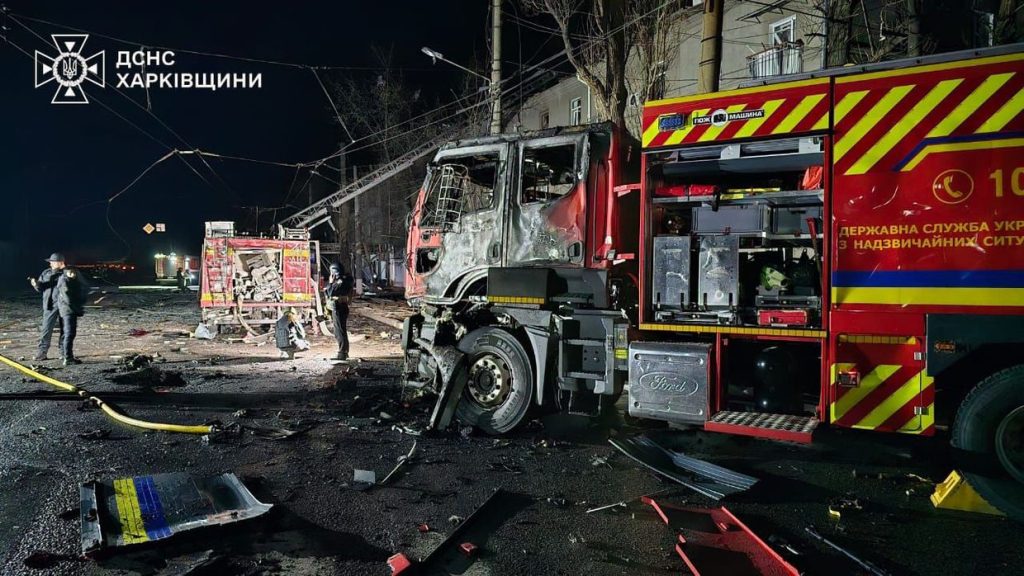Russian attacks on the city of Kharkiv resulted in the death of at least four individuals, including rescue workers, and left 12 others injured. The strikes occurred on April 4, as confirmed by Kharkiv Oblast Governor Oleh Syniehubov via Telegram. This act of aggression further escalates tensions in the region, highlighting the ongoing conflict between Russia and Ukraine.
The violence in Kharkiv underscores the devastating impact of warfare on civilian populations and those tasked with providing assistance during times of crisis. Rescue workers, who are committed to saving lives and aiding communities in need, tragically became victims themselves in the Russian attacks. The loss of life and injuries sustained serve as a stark reminder of the human cost of conflict and the urgent need for peace and resolution.
As the situation in Kharkiv unfolds, the international community remains vigilant in monitoring and responding to developments in the region. The targeting of civilian areas and rescue workers by Russian forces draws condemnation and calls for accountability from global leaders and organizations. Efforts to address the root causes of the conflict and seek diplomatic solutions are paramount to preventing further loss of life and instability.
The tragic events in Kharkiv serve as a somber reminder of the ongoing humanitarian crisis in Ukraine and the urgent need for a peaceful resolution to the conflict. The toll on civilian lives, including rescue workers who bravely assist those in need, underscores the importance of upholding human rights and protecting vulnerable populations in times of war. The international community must prioritize efforts to promote peace and support those affected by the violence in the region.
In response to the Russian attacks on Kharkiv, efforts to provide aid and assistance to those affected by the violence are crucial in mitigating the impact on civilians and ensuring their safety and well-being. Humanitarian organizations and relief agencies play a critical role in delivering essential services and support to communities caught in the crossfire of conflict. Their work is vital in addressing the immediate needs of those impacted by war and promoting resilience and recovery in the aftermath of violence.
As the world continues to witness the devastating consequences of warfare in Kharkiv and other conflict-affected areas, a renewed commitment to diplomacy and peace-building efforts is essential. The voices of those affected by the violence, including the families of the victims and the displaced, must be amplified and their rights protected. Through collective action and solidarity, the international community can work towards a future where conflicts are resolved through dialogue and cooperation, rather than violence and destruction.















